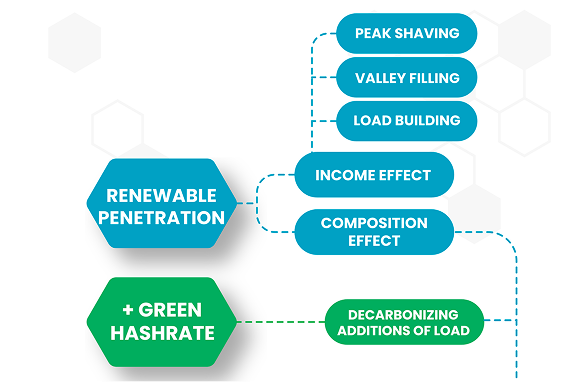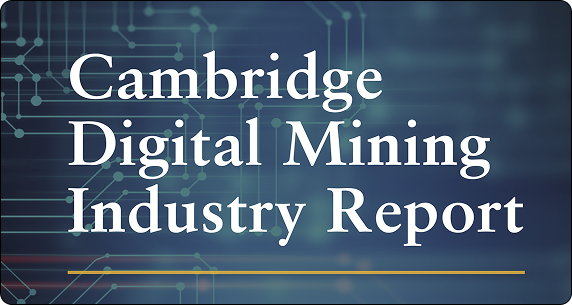Stories, ideas and perspectives
Together, we can steer the Bitcoin mining industry toward ethical and sustainable practices.
Listen to Our Founder on Untangling Web3
Our founder, Dr. Owen Vaughan, joins the Untangling Web3 team to explore how Bitcoin mining can drive positive environmental and social change.
In this episode, they cover:
- Grid stabilisation in Texas
- Financing grid expansion in Ethiopia
- Cutting CO₂ emissions by repurposing flare gas
They also discuss how Bitroots’ certification and tracking of renewable-mined Bitcoin can boost miner profitability.
Source: Untangling Web3

The Fairmined Gold Standard
At Bitroots we actively seek inspiration from other industries and adopt their best practices. In 2008, Fairmined pioneered new ethical and environmental standard for responsibly sourced gold and associated precious metals. Certification not only enhances the credibility of mining operations but also makes cold business sense: Fairmined gold trades at a 2-4% premium over non-certified competitors.
Source: Fairmined

Ethiopia Is Leveraging Hydroelectricity To Generate Revenue Through Bitcoin Mining
With an abundance of renewable energy and a fragmented electricity grid, Africa has become a key player in sustainable Bitcoin mining. A prime example is the Grand Ethiopian Renaissance Dam, where excess hydroelectric power is converted into millions of dollars in revenue for the state. In countries like Zambia, Kenya, and the Congo, Bitcoin mining supports micro-grid power generation and funds environmental initiatives such as national park conservation.
Source: CryptoDaily

Bitcoin’s Carbon Footprint Revisited: Proof of Work Mining for Renewable Energy Expansion
There have been several recent academic papers on Bitcoin mining and sustainability. A systematic study by Dr Juan Ignacio Ibañez and Dr. Alexander Freier concludes that Bitcoin mining is attracted to inexpensive, often renewable, energy sources. This can help drive renewable expansion and a greener grid, achieving net decarbonisation. However, Bitcoin mining must evolve to avoid exacerbating peak demand.
Source: Bitcoin’s Carbon Footprint Revisited: Proof of Work Mining for Renewable Energy Expansion, Ignacio Ibañez and Freier.

Cambridge Digital Mining Industry Report
The 2025 Cambridge Digital Mining Industry Report confirms that of 52% of global mining now relies on renewable or nuclear power, while hardware performance continues to improve. It highlights the United States as the dominant mining hub, with electricity as the primary cost driver, and notes how rising energy prices and regulatory uncertainty are shaping miners’ strategies for resilience and growth.
Source: Cambridge Centre for Alternative Finance

How Bitcoin Miners are revolutionising America’s Electrical Grid
In the US, Bitcoin mining is a rapidly growing, particularly in states like Texas with deregulated energy markets. Rather than placing a burden on the grid, Texas now has one of the most stable and affordable energy supplies in the country. Bitcoin mining has contributed positively by helping finance power generation expansion ahead of large-scale grid connectivity. The precision and responsiveness of mining rigs mean they can power up or down instantly, helping to balance the energy load.
Source: CoinShares
Sustainable Composition of Bitcoin Mining Over 50% And Growing
In a comprehensive analysis of Bitcoin mining by energy source by Daniel Batten, which includes both on- and off-grid mining, concludes that over 50% of the energy is derived from sustainable sources. The largest contributor of all energy sources is hydroelectric power, and the sustainable composition is growing at a rate of 6.2% per year.
Source: Bitcoin by Energy Source, Daniel Batten

New MiCA Regulations Requires Disclosure of Environmental Impact of Digital Assets
The European Union’s new Markets in Crypto-Assets Regulation (MiCA) regulation come into effect in December 2024. It requires cryptoasset service providers to disclose the annual energy consumption of their assets, including indicators of renewable energy contributions. The list of service providers includes exchanges, custody providers, portfolio managers, and advisory services.
Source: Zumo